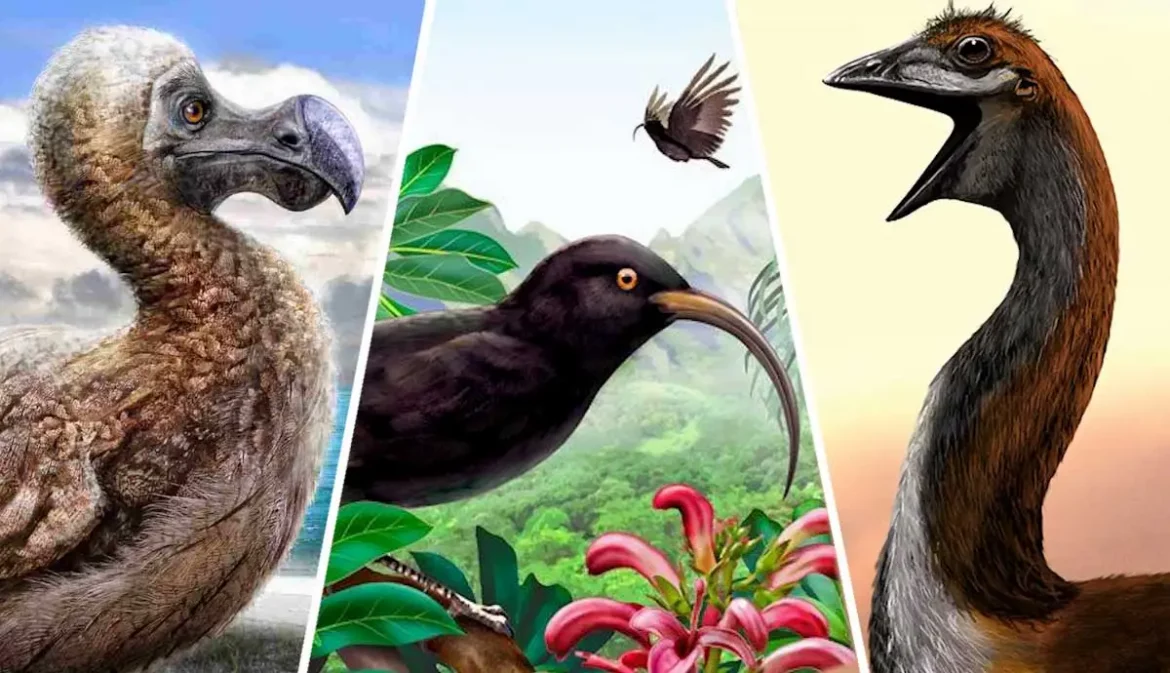A new research has found that about 12% of the world’s bird species have been driven to extinction by human activity– double previous estimates.
The study, which was published in Nature Communications on Tuesday, estimates that about 1,430 bird species have died out since the Late Pleistocene period, which started about 120,000 years ago.
Known bird extinctions, identified using fossil or other records, account for about 640 species. The new estimate includes the birds that went extinct without the event being recorded – what scientists call a dark extinction.
“We know we have lost iconic birds like the dodo, but we wanted to get a better estimate of the bird extinctions we didn’t know about,” said Dr Rob Cooke, who is an ecological modeller at the UK Centre for Ecology and Hydrology and the paper’s lead author.
To calculate the number of unknown extinctions, Cooke and his team extrapolated from the 640 bird species known to be extinct using a statistical model. The model used New Zealand as the baseline for bird species loss on the basis that the country had zero unknown extinctions.
Read also: Freezing weather hinders rescue efforts as death toll from China earthquake rises to 131
“New Zealand was the benchmark, it has the most complete bird record based on found fossils and bird observations, so that is the zero point, there is nothing unobserved in New Zealand,” Cooke said.
The team also created an estimate of how many species might have lived on an island, using the New Zealand data. They then subtracted the number of known extinctions, and the remaining living birds. The result is the number of undiscovered extinctions.
The study focused on island bird populations because non-migratory birds cannot easily disperse. “Islands are the best place to study extinctions: 90% of extinctions are on islands, because island birds have nowhere else to go,” Cooke said.
Cooke said that deforestation, overhunting, fires and invasive species are key causes of bird species loss.
The team’s new bird species extinction total of 1,430 may be on the low side, Cooke said. “The losses could be even higher, maybe up to 2,000, but we wanted to be conservative.”
Story was adapted from the Guardian.
